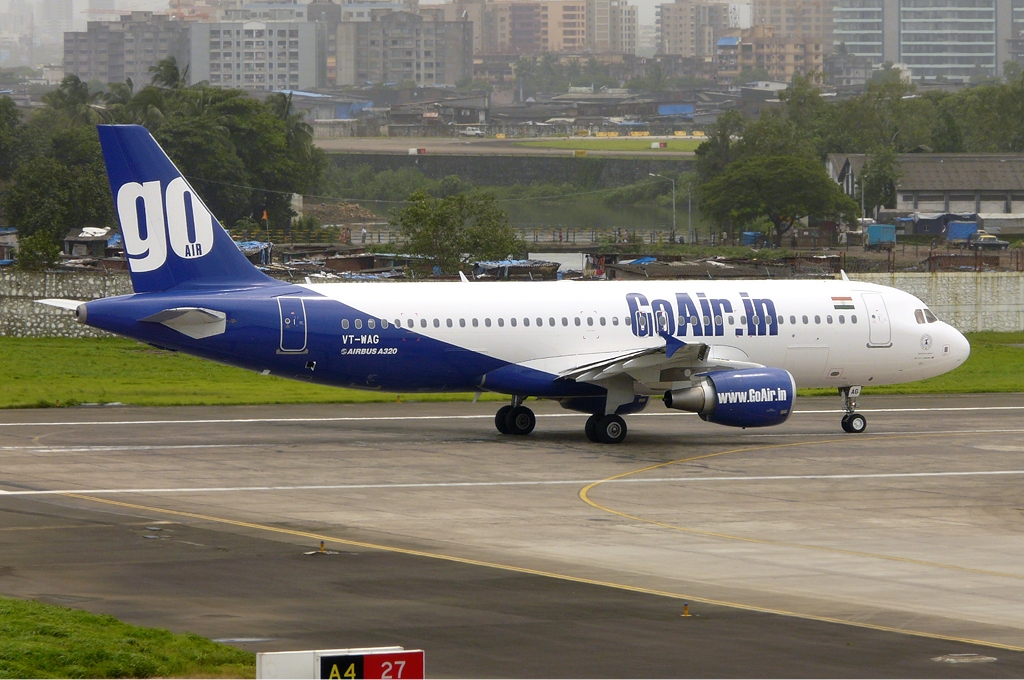
Wadias may exit GoAir, Sundar Pichai for well-regulated AI, Infosys shares fall 15%

The Federal brings you the latest developments in the Indian economy, including the automobile sector, the aviation industry, and the health of our financial system.
Wadias may shed stake or exit GoAir (Economic Times)
The news report says half of GoAir planes have been grounded because of supply chain disruptions concerning Pratt & Whitney jet engines.
What it implies: The Mumbai-based business conglomerate, Wadias, which owns Bombay Dyeing and Britannia, has struggled to keep the airline, GoAir, afloat. But several issues, especially with Pratt & Whitney engines fitted into A320 Neos, and not of its own making, have hurt the airline’s operations. While IndiGo, which faced similar issues and had to ground 35 of its A320 Neos, has received compensation from the US-based Raytheon Technologies, which manufactures P&W engines, GoAir is yet to receive the same. There have also been reports about GoAir planning to sue Raytheon.
Also read: Higher default risk by SME borrowers with loans against property: Moody’s
The machines are made with unusual or what is known as exotic metal alloys, coatings, and composites that allow them to work at temperatures as high as a furnace. But this has made the engines hotter, and the materials used cannot handle the pressure. Hence, the airlines say engine parts are wearing out faster than expected and are being sent to the repair shop sooner. Airlines have switched to P&W engines because they promise more power and less fuel consumption. But the heating problem is taking far longer to fix, and the components are unavailable off the shelf.
Push to adopt AI must be well-regulated: Google CEO Sundar Pichai (Bloomberg)
Pichai said the introduction of powerful technologies gives society no time to adjust. He pointed out the dangers of generative AI, such as the possibility of “deep fake videos”, in which people are shown making statements they did not. Pichai argued that the existence of such traps demonstrated the necessity for regulation.
What it implies: Writing for TechTarget, George Lawton has said Generative AI is an artificial intelligence technology that can generate many sorts of material such as text, images, audio, and synthetic data. The recent hype surrounding generative AI has been fuelled by the ease of use of new user interfaces for quickly creating high-quality text, drawings, and movies.
On one hand, this newly discovered skill has made prospects such as improved movie dubbing and rich educational information. But on the other hand, it also raised concerns about deep fakes, digitally created photographs or movies, and destructive cybersecurity attacks on enterprises, such as illicit requests that genuinely resemble an employee’s supervisor.
Also read: First stores in India mark company’s major expansion in country: Apple
Infosys tank 15% during first hour of trading
Analysts are cautious about Infosys deal wins going forward. Infosys won contracts worth $2.1 billion in the fourth quarter as compared to $3.3 billion in Q3.
What it implies: The US’ growth momentum is slowing down because of the recent banking crisis in the world’s largest economies. Europe, in comparison, stands resilient in terms of IT spending. Several brokers, including Citigroup and JP Morgan Chase, have downgraded the stock because of the new guidance. In addition, the revenue growth rate has been the slowest since 2018. Another reason for the fall in stock prices is that domestic MFs hold a significantly larger share of around 16 per cent in Infosys’ share capital.
How India Pays: WorldLine’s India Digital Payment Online Report
WorldLine, a French multinational payment and transactional services company, said in 2022, payment modes like UPI, debit and credit cards, and Prepaid Payment Instruments – mobile and prepaid cards processed 87.92 billion transactions worth INR 149.5 trillion. It is evident that UPI Person-to-Merchant (P2M) and Person-to-Person (P2P) are the most preferred payment modes among consumers, with a market share of 40 per cent and 44 per cent in terms of transactions volume (UPI was 84 per cent in total). However, in terms of value, UPI P2M accounted for 18 per cent share, whereas UPI P2P accounted for 66 per cent of digital transactions by value (UPI was 84 per cent in total).
It should be noted that P2P transactions are not necessarily payments and can also be potentially money transfers among people. This is followed by payment through credit and debit cards which accounted for 7 per cent in volume and 14 per cent in value. As of 2022, the top 5 UPI Apps in terms of volume and value were PhonePe, Google Pay, Paytm Payments Bank App, Amazon Pay and Axis Bank. The Average Ticket Size (ATS) for UPI P2P transactions was Rs 2,753, and ATS for UPI P2M transactions was Rs 687 by December 2022.
Also read: TCS to continue investments in R&D, technology: CFO Seksaria
As of December 2022, the total number of POS (Point of Sales) terminals deployed by merchant acquiring banks breached the 7.55 million mark hitting a 37 per cent YoY growth. Private Sector Banks dominate the space with a 74 per cent market share, while Public Sector Banks account for 18 per cent. Payments Banks and Foreign Banks continue to have a 7 per cent and 1 per cent market share, respectively. The top POS deployers were HDFC Bank, Axis Bank, ICICI Bank, State Bank of India, RBL Bank, Paytm Payments Bank, and IndusInd Bank, covering 92% market share as of December 2022.
Card issuance: The total number of credit and debit cards in circulation by the end of the year 2022 was 1.02 billion. The number of outstanding credit cards increased by 18 per cent from 69 million in December 2021 to 81.1 million in December 2022, while exceptional debit cards increased by 0.2 per cent from 938 million to 939.4 million.


